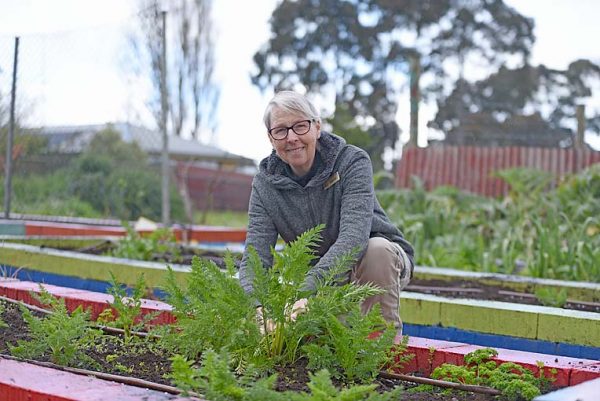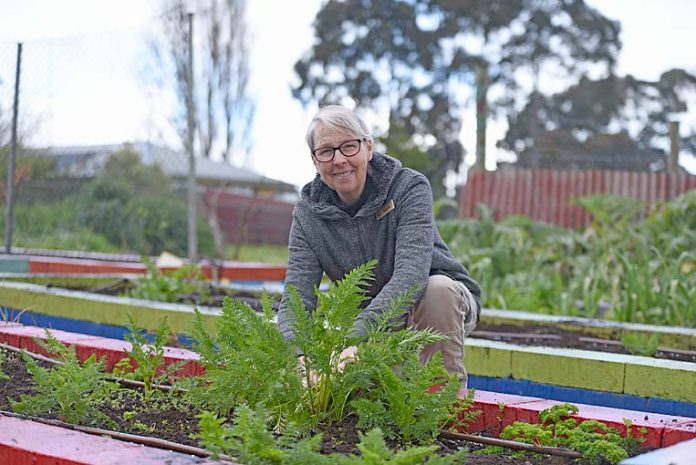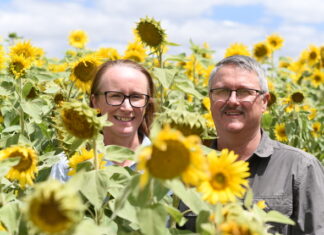
A STUDY into the effectiveness of the Stephanie Alexander Kitchen Garden Program has revealed its positive impact on the majority of participants over the past 15 years.
Research carried about by the University of Melbourne has uncovered the program’s long-term impact, with 84pc of children who completed the learning experience during 2008 and 2010 – now aged between 18 and 23 – reporting a positive impact on their lives.
It is a glowing endorsement for the multi-faceted program, which has been developed in Mount Gambier at McDonald Park Primary School where various year levels are exposed to the hands-on learning.
School garden program coordinator Elaine Hart said the program educated children about the entire process of their food.
“The kids are involved in every step from planting the seeds to learning what they need to grow, to the science behind the soil,” she said.
“I think it helps the children develop a real love for food, they grow these things they would not normally eat and it gives them that encouragement to try them out.
“Most of the time they try something and realise it does not actually taste as bad as they thought and I think that comes down to knowing the entire process and putting that hard work in.”
Ms Hart said having the garden at the school encouraged children to go home and grow their own plants.
“The children learn to love gardening which makes them want to go home and do it themselves,” she said.
“I think having that healthy attitude towards fresh produce and that drive to want to grow it gives them skills for later on in life and starts to change their relationship with food.
“It is so important to teach the children when they are young so they can continue this healthy lifestyle down the track.”
From the garden, the fresh produce then moves into the kitchen where students learn from teacher Sally Ann Morgan.
Ms Morgan said students understanding of the process from garden to plate was an important lesson.
“At the start of each lesson we go to the garden and harvest the produce we will be using that day,” she said.
“I think it is important for the kids to really see the entire process and take real ownership of their food.
“They also get to know what foods are in season and what are not.
“Sometimes all we have ready is herbs and the students learn how to cook with those – it also helps them become more aware of how to cook with minimal options.”
Ms Morgan said the lessons showed children how to throw food together from what they have available to them, instead of going and buying take away or extra ingredients every day.
“It is all about fresh produce and giving them a more healthy appetite, but it also teaches them how to be resourceful,” she said.
“You might not always have all the ingredients you are used to, so it helps them learn how to improvise or find things in the cupboard and make a meal out of those.
“In the long run it gives them the life skills to eat healthier and cook for themselves.”








